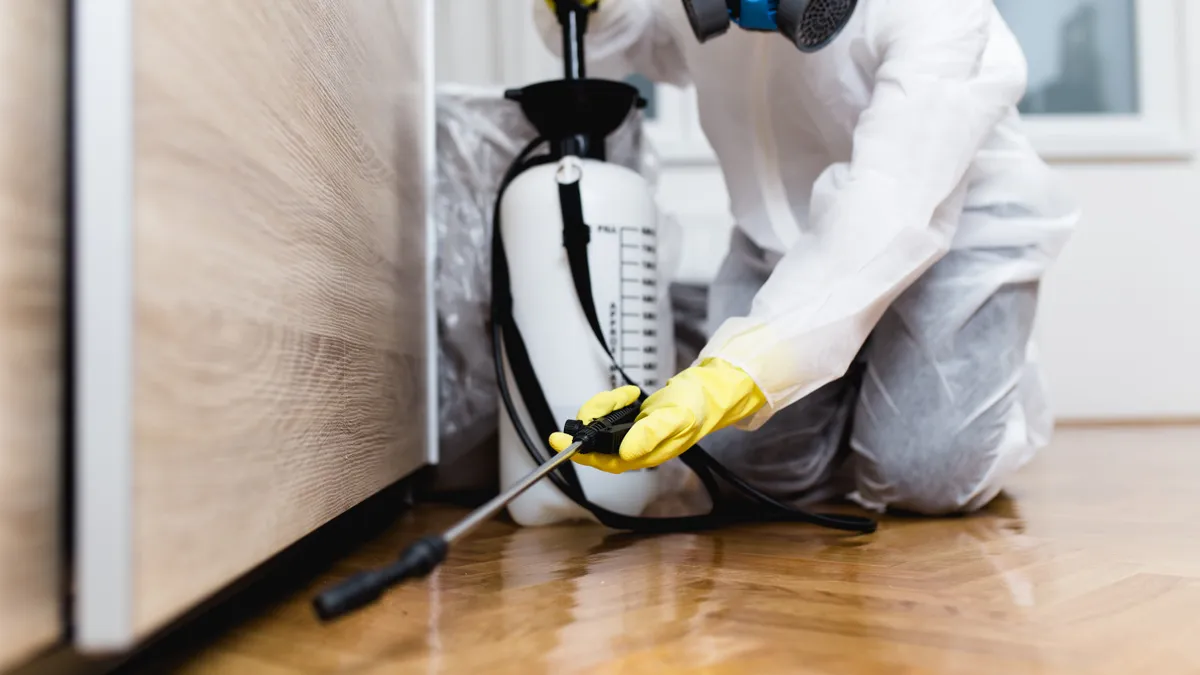Dive Brief:
- The Securities and Exchange Commission announced that Rollins Inc., a global pest control company, agreed to pay $8 million to settle charges that it improperly altered its books to meet analysts’ consensus earnings estimates.
- The SEC said that in the first quarter of 2016 and second quarter of 2017, Rollins illegitimately trimmed accounting reserves to round up reported earnings per share (EPS) to the next penny. Former Rollins CFO Paul Northen directed the changes without analyzing criteria under generally accepted account principles (GAAP) or justifying the basis for the accounting entries, the SEC said.
- Rollins has “reevaluated and strengthened our internal controls over financial reporting and improved processes, procedures and supporting documentation, including those related to management’s judgments and estimates impacting reported financial results,” the company said Monday in a statement.
Dive Insight:
Since late 2020 the SEC’s Enforcement Division has identified four cases of wrongdoing under its EPS Initiative, which uses risk-based data analytics to uncover potential accounting and disclosure violations, including improper earnings management that hides weak performance.
The Rollins settlement is the highest penalty yet under the EPS Initiative, Enforcement Division Director Gurbir Grewal said in a statement, noting “the SEC staff’s ever-increasing sophistication with data.” Northen agreed to pay a $100,000 civil penalty, the SEC said.
“Earnings growth was important to Rollins, and it often touted the consistency of that growth in its earnings releases and periodic filings to the investing public,” the SEC said.
Rollins — whose subsidiaries operate under such names as Orkin, PermaTreat and Critter Control — determined every quarter an amount to reserve in several categories of liability accounts, including for bad debts and casualty and medical expenses. It also maintained a “termite reserve” to meet claims from commercial and residential customers for repairs, settlements, and labor and chemicals, the SEC said.
“The CFO had the final and ultimate authority to determine the appropriate amount of the corporate-level reserves,” the SEC said. Adjustments “had a direct impact on Rollins’ net income and thus, by extension, the company’s reported EPS.”
In April 2016, on the fifth day of a six-day accounting process to close the books after a quarter, Rollins financial executives received an internal “flash report” showing that a preliminary EPS of 12 cents was 3 cents less than the consensus estimate.
On the next day — the final day of the quarterly close process — Northen told other financial executives he had “room to look” in the termite reserve for additional income, the SEC said.
Later that day, he directed a $1.3 million reduction in the termite reserve and cuts to the medical and outside services reserves that enabled Rollins to match consensus EPS estimates of 15 cents, the SEC said. Northen made similar changes to hit targets for the second quarter of 2017.
“Rollins lacked accurate books and records and sufficient internal accounting controls, and failed to maintain internal control over financial reporting,” the SEC said.
When Northen was preparing to take over as CFO in 2015, an unidentified Rollins executive who has since left the company told him that a reserve account would allow him to “‘give up positive adjustments at quarter-end that offset negative surprises,’” the SEC said.
“‘Some quarters you need flexibility and it is good to know a place where you might have it — it’s part of the art of the close,’” the former executive told Northen, according to the SEC.














